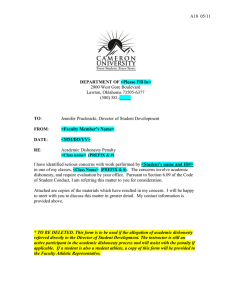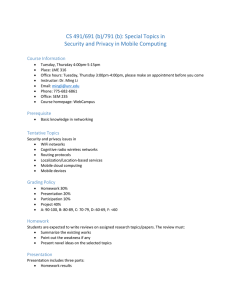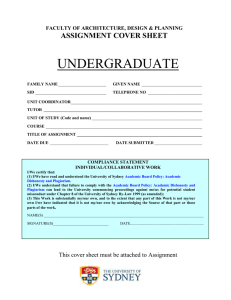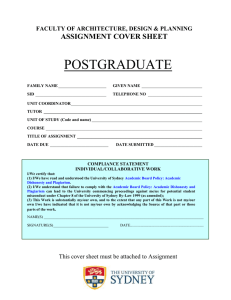Guidelines for Academic Dishonesty
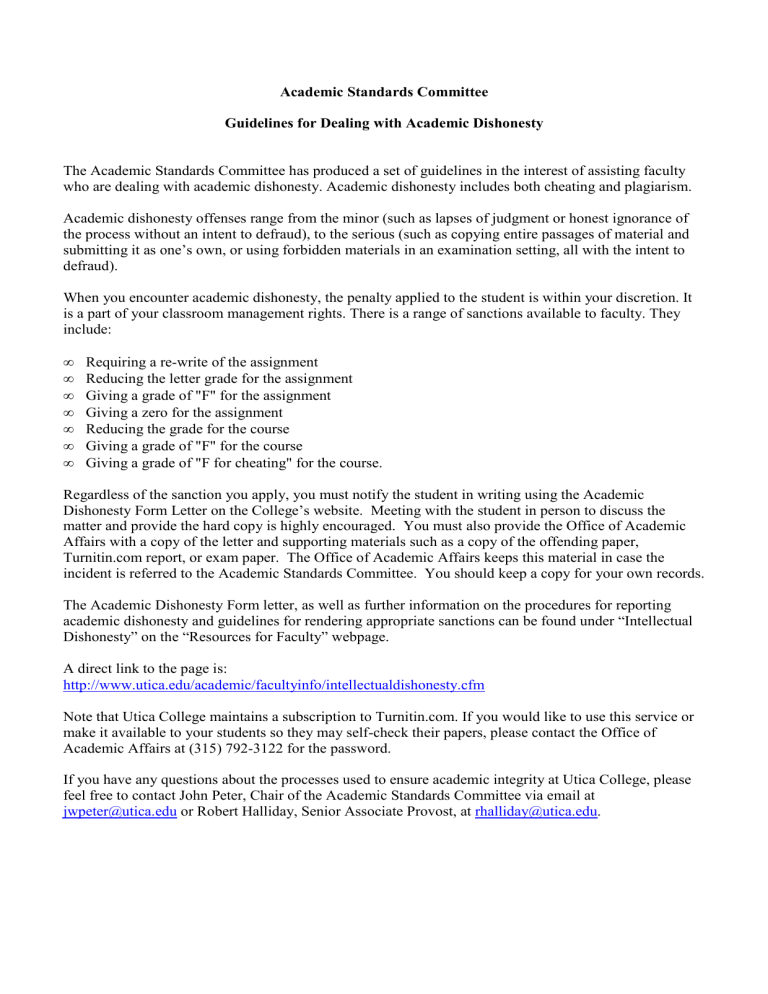
Academic Standards Committee
Guidelines for Dealing with Academic Dishonesty
The Academic Standards Committee has produced a set of guidelines in the interest of assisting faculty who are dealing with academic dishonesty. Academic dishonesty includes both cheating and plagiarism.
Academic dishonesty offenses range from the minor (such as lapses of judgment or honest ignorance of the process without an intent to defraud), to the serious (such as copying entire passages of material and submitting it as one’s own, or using forbidden materials in an examination setting, all with the intent to defraud).
When you encounter academic dishonesty, the penalty applied to the student is within your discretion. It is a part of your classroom management rights. There is a range of sanctions available to faculty. They include:
•
Requiring a re-write of the assignment
•
Reducing the letter grade for the assignment
•
Giving a grade of "F" for the assignment
•
Giving a zero for the assignment
•
Reducing the grade for the course
•
Giving a grade of "F" for the course
•
Giving a grade of "F for cheating" for the course.
Regardless of the sanction you apply, you must notify the student in writing using the Academic
Dishonesty Form Letter on the College’s website. Meeting with the student in person to discuss the matter and provide the hard copy is highly encouraged. You must also provide the Office of Academic
Affairs with a copy of the letter and supporting materials such as a copy of the offending paper,
Turnitin.com report, or exam paper. The Office of Academic Affairs keeps this material in case the incident is referred to the Academic Standards Committee. You should keep a copy for your own records.
The Academic Dishonesty Form letter, as well as further information on the procedures for reporting academic dishonesty and guidelines for rendering appropriate sanctions can be found under “Intellectual
Dishonesty” on the “Resources for Faculty” webpage.
A direct link to the page is: http://www.utica.edu/academic/facultyinfo/intellectualdishonesty.cfm
Note that Utica College maintains a subscription to Turnitin.com. If you would like to use this service or make it available to your students so they may self-check their papers, please contact the Office of
Academic Affairs at (315) 792-3122 for the password.
If you have any questions about the processes used to ensure academic integrity at Utica College, please feel free to contact John Peter, Chair of the Academic Standards Committee via email at jwpeter@utica.edu
or Robert Halliday, Senior Associate Provost, at rhalliday@utica.edu
.
